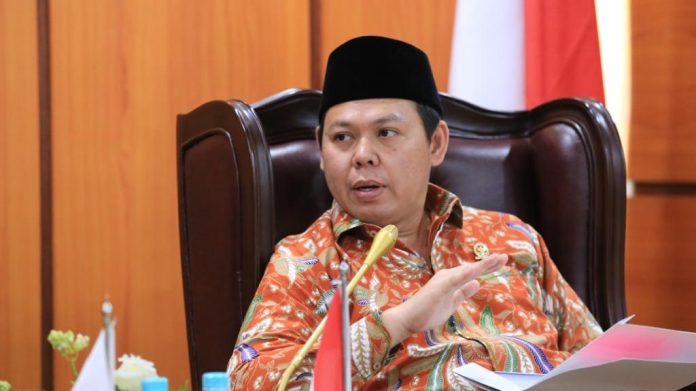JAKARTA – President Joko Widodo (Jokowi) has set the theme of the 2024 Government Work Plan (RKP), namely ‘Accelerating Inclusive and Sustainable Economic Transformation’.
Some of the main targets in the RKP are Farmers’ Exchange Rates (NTP) and Fishermen’s Exchange Rates (NTN) at the numbers of 108 and 107 respectively.
Responding to this, the Vice Chairman of The House of Regional Representatives of Republic of Indonesia (DPD RI) Sultan B Najamudin assessed that the NTP and NTN targets were still far from the ideal targets which were significant to boost the level of welfare of farmers and fishermen.
“We are not saying this target is too low, but the hope of accelerating the transformation of economic development should set a more ambitious target for the welfare of the communities of the farmers and the fishermen. The NTP target figure could be lower than the achievement in February this year which reached 109.00, up 1.11 percent,” said Sultan through his official statement on Friday (3/3).
NTP, said Sultan, is a measure of the level of income and expenditure of the communities of the farmers and the fishermen that is quite precise and up to date.
NTP is an indicator to see the level of ability/purchasing power and exchange power of farmers and fishermen in rural areas.
“The stagnant and fluctuating NTP indicates that the government is not fully serious about paying attention to the welfare of farmers and fishermen. We believe President Joko Widodo’s government will pass on the legacy and high standards of NTP to the next administration,” hoped the former Deputy Governor of Bengkulu.
Ideally, said Sultan, the communities of the farmers and the fishermen can enjoy prosperity with NTP and NTN at 120.
Because the NTP and NTN targets have a broad impact on the achievement of other government economic development targets.
Especially on the target of reducing the stunting rate, the human development index, and of course reducing the extreme poverty rate.
Therefore, he continued, we asked the government to review several policies that were burdensome to realizing agricultural economic transformation, such as the Minister of Agriculture Regulations Number 10 of 2022 which limits fertilizer subsidies to small farmers in all commodities.
The types of subsidized fertilizers may be limited, but the types of commodities need to be applied as before.
“Especially fertilizer subsidies for oil palm independent smallholders, which have been the leading export commodity so far. The efforts to increase farmer productivity should also be encouraged by using superior seeds for farmers, which must be increased,” emphasized Senator Sultan.
In addition, the former chairman of the Bengkulu HIPMI asked the government to control the desire to meet food needs through an import policy.
The government must be confident with its own agricultural development policies so that it does not need to rely on food from other countries.




